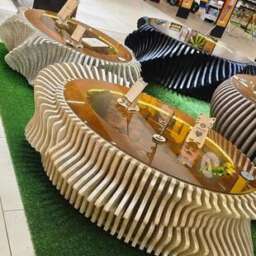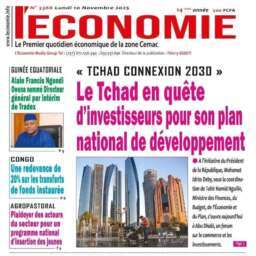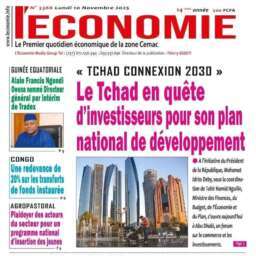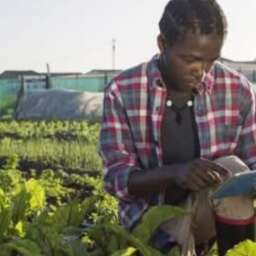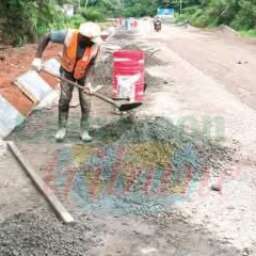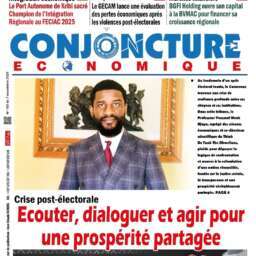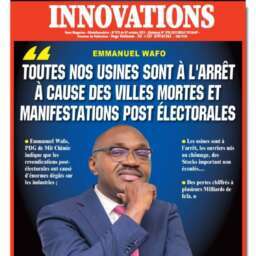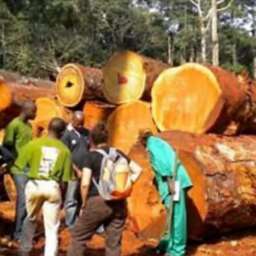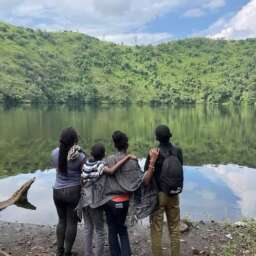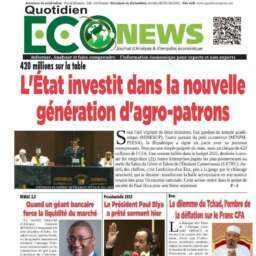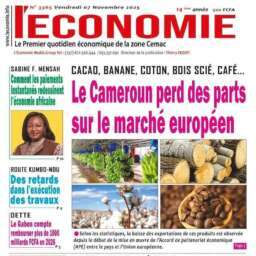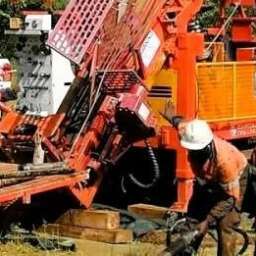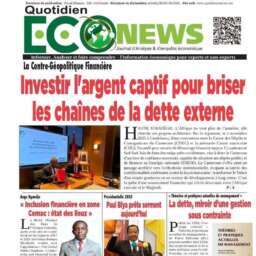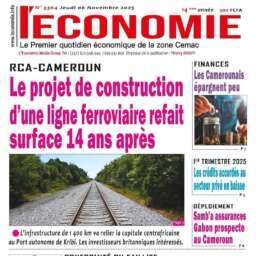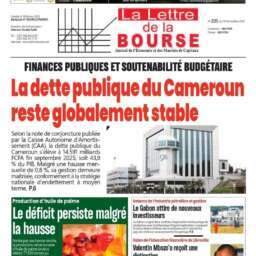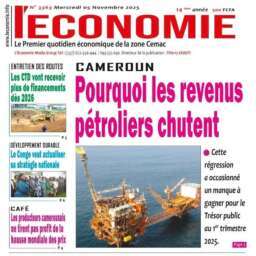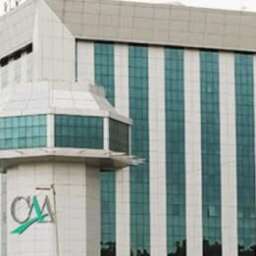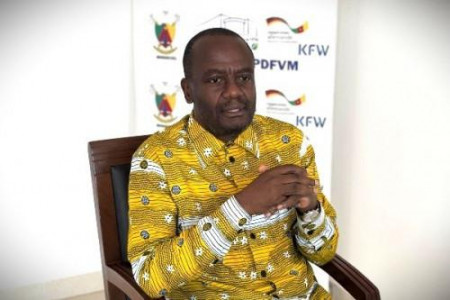(Business in Cameroon) – As the Special Fund for Equipment and Inter-Municipal Intervention (FEICOM) marks its 50th anniversary, its Director General, Philippe Camille Akoa, reflects on the institution’s achievements, challenges, and future goals. He discusses the funds mobilized, major projects undertaken, the financial situation of decentralized local governments, and ongoing reforms to adapt FEICOM to modern challenges, including climate finance and artificial intelligence. His insights highlight FEICOM’s central role in building a modern and sustainable Cameroon in an era of decentralization.
BC: FEICOM just celebrated its 50th anniversary. How is the institution doing today?
Philippe Camille Akoa: We officially marked our 50th anniversary on December 5, 2024. The institution was founded on December 5, 1974, and over the years, it has grown significantly. Initially, it was just an administrative department under the Ministry of Territorial Administration. Over time, it evolved into a public institution, though not without challenges. In 2005, FEICOM had to undergo temporary administration, and I was appointed as its Administrator before becoming Director General in 2006. Since 2018, we have undergone another reorganization, transforming FEICOM into a public institution with economic and financial functions.
Our responsibilities have expanded to include regional support, whereas previously, FEICOM only focused on municipalities. This expansion has allowed us to mobilize more resources in addition to the substantial funding provided by the state.
Today, I can confidently say that FEICOM is doing well and fully carrying out its mission to support decentralized local governments. As Director General, I believe FEICOM has a promising future ahead.
BC: FEICOM reports over CFA500 billion in financing for decentralized local governments. What impact has this funding had?
Philippe Camille Akoa: The CFA500 billion you mentioned more precisely, CFA539.17 billion has been allocated since 1974 to municipalities and regions across 6,348 funding agreements. Specifically, for the regions, 43 agreements have been signed, totaling CFA20.99 billion.
Beyond these investments, FEICOM also plays a crucial role in redistributing additional municipal taxes and other equalization-based communal taxes, including excise duties. Between 1998 and 2024, we redistributed CFA1,386,424,972,236 to local governments.
In terms of impact, FEICOM regularly publishes annual reports that illustrate the infrastructure projects we have supported nationwide. While town halls and municipal buildings are among the most visible achievements, our contributions extend far beyond that. We actively invest in education, healthcare, water access, electricity, and other essential services.
In addition, we now go beyond traditional financing methods. For example, we work with partners like the European Union and the German development bank KfW to fund programs for internally displaced persons in Cameroon. We are also involved in social housing, with a CFA30 billion program in collaboration with Crédit Foncier du Cameroun, which is set to increase in the coming days.
Furthermore, we collaborate with the African Development Bank to finance agricultural and fishery value chains. Another important area of focus is promoting healthy nutrition, particularly in schools. We have dedicated funds for this initiative and also receive support from the United Nations Food and Agriculture Organization (FAO). At FEICOM, we understand that development is not just about infrastructure—it’s about people. Well-nourished children perform better in school, and that, in turn, contributes to national progress.
BC: Despite your efforts, most local governments are still struggling. They continue to request more support, especially for basic socio-economic infrastructure and even local governance. Are these challenges due to insufficient funding or poor planning?
Philippe Camille Akoa: It is important to understand that we are a developing country. This means that, to some extent, we are inevitably behind compared to developed nations. It also means that we have many needs while our resources remain limited. The role of FEICOM is therefore to contribute to development, with support from the government and its development partners.
It is also worth noting that the development strategies adopted by FEICOM align with both national and international frameworks. In other words, every FEICOM funding today is tied to either a Sustainable Development Goal or the SND30 development strategy. When we finance water projects, for example, it is because they fall under one of the pillars of SND30, which is also a sustainable development goal. This alignment justifies our funding decisions.
BC: Given the enormous financial needs of local governments, some suggest that FEICOM should raise funds on financial markets. However, this does not seem possible under FEICOM’s current status. Are you considering a reform that would allow FEICOM to access capital markets?
Philippe Camille Akoa: The transition to becoming a public institution with an economic and financial focus has already been a significant step forward, as it gives us more flexibility. When we were just a regular public institution, for instance, Crédit Foncier du Cameroun would never have loaned us CFA30 billion. It is because of our current status that we have this opportunity.
It is also important to highlight the work being done by the government. Right now, FEICOM is undergoing a credit rating process led by the national sinking fund. The outcome of this rating will determine the level of risk FEICOM represents on financial markets, which will then allow us to explore raising funds through these markets.
This status already gives us considerable room to maneuver, especially when working with development partners. Many of them are now considering providing us with loans instead of grants. We are currently negotiating with several financial institutions in this regard.
We will also receive funding in the form of loans to support different types of investments. This possibility is being considered as we look ahead to the next 50 years of FEICOM, where we expect further developments over time.
However, I must emphasize that we have not yet fully mastered or implemented our current status in its entirety. A proper assessment will help determine the next steps for FEICOM’s progress. It is also crucial to recognize that FEICOM’s growth alone is not enough. Local governments must develop as well. Otherwise, FEICOM could become an institution that meets international standards but struggles to work effectively with local governments. This evolution must happen in parallel, ensuring that local governments advance at the same pace as FEICOM.
BC: Regarding the reform you mentioned, which has transformed FEICOM into a public institution with an economic and financial focus, it now allows FEICOM to make investments and take equity stakes in companies. What is the current status of these investments, equity participations, and placements?
Philippe Camille Akoa: It is important to clarify that under this status, the government sometimes borrows and then transfers funds to FEICOM. This is the case with the ongoing project for a fleet of civil engineering and hydraulic equipment in partnership with the Americans. The government took out the loan, but it was transferred to FEICOM because we have the capacity to repay these resources.
Regarding other aspects, such as investments, we have undergone an internal restructuring, including the creation of a new department dedicated to financial operations and asset management. This unit is led by a former banking executive to ensure its proper implementation. The results are already evident. For instance, we have a portfolio of land and real estate assets that we are now leveraging thanks to our new status.
However, in terms of financial placements, none have been made yet. We are still in discussions with the Ministry of Finance to determine how these operations should be conducted. In 2024, we held extensive consultations with the Caisse des Dépôts et Consignations, the Central Bank, and various commercial banks. The Minister of Finance himself has encouraged us to engage more with the banking sector.
BC: From a financial standpoint, how would you assess FEICOM’s performance in 2024?
Philippe Camille Akoa: In terms of resource mobilization, 2024 was a successful year based on the results as of December 31. A total of CFA197 billion in revenue was collected, surpassing the target of CFA189 billion, representing a 104 percent achievement rate. These results were driven by tax reforms that expanded the revenue base, as well as effective cooperation with the financial administration.
Building on this performance, we have confidently set a target of CFA294 billion in resource mobilization for 2025. This projection also takes into account the new local taxation law and the provisions of the Finance Law. The latter introduces several innovations, including the modernization of public sector payroll management and climate-sensitive budgeting, which is being implemented for the first time in the preparation of a Finance Bill.
BC: FEICOM has invested heavily in the construction of city halls, but these projects are often criticized, particularly regarding infrastructure quality and costs. How do you respond to these criticisms?
Philippe Camille Akoa: At FEICOM, we believe that our country must be built with lasting, high-quality infrastructure. Take, for example, the Paris City Hall, which remains an architectural reference for tourists today. It was built in the 1600s, at a time when automobiles did not even exist, and people traveled on horseback. Why should other nations have historic landmarks while Cameroon does not? We firmly stand by our decision to prioritize durable construction.
It is also important to highlight that this city hall construction program, launched in 2006, has resulted in the completion of approximately 230 buildings and is now nearing its end. Not all municipalities will request a new city hall, and the funds previously allocated to this program will now be redirected toward education, water supply, climate change initiatives, and other pressing needs.
City hall construction at FEICOM is now behind us. Cameroonians should move on to a new debate one in which we can actively participate because these city halls are already built, they are visible, they reflect the vision of local mayors, instill pride in many communities, and serve as reference points.
BC: FEICOM is no longer just a financial institution for local governments, redistributing additional municipal taxes. It now funds projects in livestock, infrastructure, and more. Is FEICOM not encroaching on the roles of development programs like PNDP or, more recently, PROLOG?
Philippe Camille Akoa: I must point out that FEICOM predates both PNDP and PROLOG. The real question is whether PNDP has not encroached on FEICOM’s role or if PROLOG, which is still new and has yet to take any concrete action, is not stepping into an already occupied space. FEICOM has been operating since 1974, well before decentralization was formally established by the Constitution and implemented in Cameroon.
This also means that multiple actors can operate in the same space. What truly matters is the coordination of their efforts. As you rightly mentioned, FEICOM has played a role in implementing PNDP, providing the municipal counterpart funding. Today, FEICOM is also part of PROLOG’s steering committee, ensuring a level of coordination on the ground. There is room for multiple stakeholders.
BC: FEICOM has pledged to support regional councils in constructing their headquarters, offering an incentive of CFA1 billion per region. What is the current status of this initiative?
Philippe Camille Akoa: When regional councils began functioning, they fell within FEICOM’s scope. However, a key element was missing—the local taxation law, which determines the financial resources of the regions that FEICOM is supposed to manage.
Given that these new entities became our clients but lacked dedicated funding, FEICOM’s management proposed to the Board of Directors that unused treasury reserves be allocated to regions at a rate of CFA1 billion per month.
Beyond this funding, we also initiated discussions on regional headquarters, as these structures represent the institution and mark the first phase of a broader project to develop new urban centers. The goal is to provide resources not just for building headquarters but also to support regions in fulfilling their legally assigned missions.
In this regard, construction of the North West regional headquarters is underway, while procurement procedures are in progress for the West region. Other regions have allocated their funding to different priorities. For example, in Adamaoua, high schools and classrooms have been built, and similar projects have been undertaken in the East and South. In the South West, several hospitals specializing in dialysis treatment are being planned. In Littoral, the regional council rehabilitated a building provided by the government, transforming it completely. By March, the Littoral regional council should be installed in its new offices. Overall, tangible progress is being made in the regions.
BC: What is the current debt status of local governments to FEICOM?
Philippe Camille Akoa: Local governments currently owe FEICOM a total of CFA128 billion. This includes CFA36 billion in outstanding due debt and CFA91.8 billion in non-disbursed debt.
BC: The acquisition of equipment for municipalities brings to mind a project discussed some time ago—the purchase of 261 machines. This project was developed alongside the United Councils and Cities of Cameroon (CVUC). What is its current status?
Philippe Camille Akoa: This project has taken nearly a decade to materialize. It was first presented to the government by the CVUC in 2008. The government recognized its value and decided that FEICOM, as the financial institution supporting municipal development projects, should oversee it. Eventually, in 2024, the financing agreement was signed, and we expect the first machines, manufactured in the United States, to arrive in Cameroon by the end of the year.
BC: Will the equipment be distributed to each municipality, or will they be managed in a central park where municipalities can request them as needed?
Philippe Camille Akoa: The project was designed as a shared equipment pool rather than direct distribution. We have established regional bases: Maroua for the North and Far North, Mbalmayo for the Center and South, Koutaba for the West and North West, Mandjou for the East and Adamawa, and Tiko for the South West and Littoral.
This initiative operates as a separate management unit linked to FEICOM but functionally independent. The machines will be stationed at these bases, and municipalities will submit requests for roadwork and other infrastructure projects. In addition to civil engineering equipment, the project includes drilling machines for water projects, capable of reaching great depths. The equipment will also be moved between bases based on seasonal needs.
The project spans seven years, with short-term repayment schedules. Once the debt is repaid, municipalities will have a say in how the equipment is managed to ensure greater efficiency. FEICOM will maintain oversight through a dedicated unit to guarantee full repayment to the American partners. The total cost of the project stands at CFA56 billion.
BC: FEICOM has also been involved in financing social housing projects, including the construction of municipal housing developments launched nearly a decade ago. What is the status of this initiative in terms of progress, investments, and future plans?
Philippe Camille Akoa: With CFA30 billion in funding, we have already completed over 1,200 housing units, which are fully occupied. These include developments in Mengang, Bogo, Nkongsamba, Bot Makak, and Ngibassal. The key aspect of this initiative is its nationwide reach, allowing all municipalities to benefit from financing.
The project addresses concrete issues such as housing for civil servants assigned to remote areas, boosting local economies by increasing demand for consumer goods, and reducing absenteeism among teachers and other essential public employees.
Given its success, our partner, Crédit Foncier du Cameroun, is considering increasing the credit line. The project has strong government backing, particularly from the Ministers of Decentralization, Finance, and Urban Development, who support its expansion.
BC: FEICOM is in excellent financial health today. After 50 years of existence, do you plan to rethink its mission in light of the evolving environment? If so, what reforms do you consider necessary to enhance FEICOM’s effectiveness and stability?
Philippe Camille Akoa: FEICOM’s missions will inevitably be redefined, along with the way we carry out our work. For instance, we are in the process of obtaining accreditation from the Adaptation Fund, which deals with new but crucial issues. We’ve witnessed the impact of flooding in Cameroon’s Far North, and we expect to be accredited in 2025, allowing us to access green funding. Climate finance operates differently from traditional finance, and we must adapt to that shift.
Another key issue is artificial intelligence. No country can afford to overlook it. At FEICOM, we’ve already started integrating AI into our operations. For example, we no longer have a secretarial office for the Board of Directors—meeting minutes are automatically generated through an application. The Director General’s correspondence is dictated and transcribed into print.
We also have a Research and Innovation Unit exploring smart cities, which will be central to development in the coming years. A forward-thinking institution like FEICOM must remain at the forefront of these advancements.
We also hold two international certifications: ISO 9001 (2015) for quality management and ISO 14001 (2015) for environmental management. We are now working towards a third, ISO 45001, which covers workplace health, safety, and sanitation.
Our vision is to make decentralized local governments more livable, and these new missions will reflect that goal. However, this transition also requires a digitally skilled workforce. What we see in developed countries will inevitably reach Cameroon traditional writing may disappear, and machines will handle most tasks. At FEICOM, we are already thinking about these changes, which will require an evolution in both our mission and how we carry it out.



